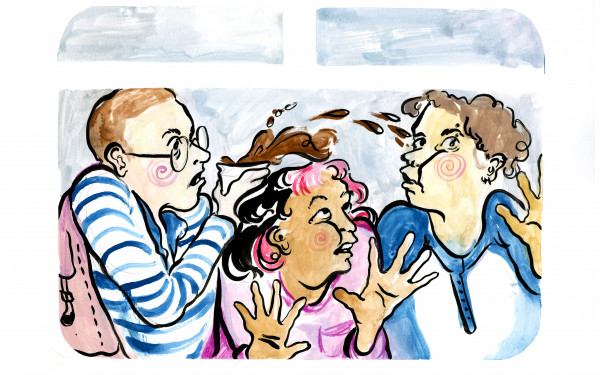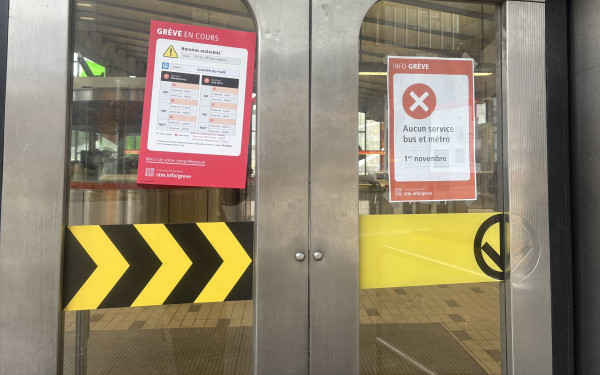Editorial: Free Public Transportation Is an Achievable and Worthy Investment
Climate Change Only One of Many Reasons to Prioritize Transit
On Tuesday, several climate groups held a protest to promote the elimination of transit fares, citing the need for radical action in the fight against climate change.
Bold action and unprecedented public investment are necessary to limit catastrophic global warming, but the reasons this proposal makes sense go beyond climate considerations.
As the organizers noted, free public transport would also have the effect of reducing income inequality, a major issue of our time. Not only this, but it would eliminate the need for problematic fare policing and promote more liveable cities by taking cars off the road.
Our governments already spend a great deal of public money on transit. In Montreal, STM customers pay less than half the system’s operating costs. Yet fares are a hardship for many individuals and families, especially in a landscape of rampant gentrification and other cost-of-living increases.
The elimination of fares, which would require service improvements to compensate for extra passengers, would liberate low-income residents to move freely about the city, increasing quality of life and even offering an economic benefit by encouraging more people to visit shops and restaurants.
In a sense, the fare system constitutes a regressive tax, meaning it is not proportional to income, whereas public investment offers us a progressive mechanism with which to fund public transportation. And while free transit may seem radical to some, it seems to those same people perfectly natural that taxes pay in full for our roads.
At current ridership rates, the cost of eliminating STM fares would be around $620 million per year, according to a 2017 report from the Institut de recherche et d’informations socio-économiques.
Cities and regions are enriched by public transit. Fewer cars on the road means better city planning and less traffic for those who do choose to drive. We should focus on making public transit as accessible as possible, which also means improving and expanding it and making it an attractive option for those who do not have to take it.
There is also the matter of enforcement. Fare evasion incidents are even more common, and possibly more violent, with the STM asking for transit inspectors to be more “police-like.” On Apr. 3, 2019, the STM board of directors passed a resolution expressing the desire to give more authority to transit inspectors. Therefore, they are encouraged to increase the use of authority and force upon those who escape the fares. It places the focus on chasing minor crimes and creates more opportunity for racial profiling.
Internalizing environmentalist values from a young age and considering public transit to be the ideal transportation method will form habits and beliefs that will continue to shape life in adulthood. More residents will prioritize the use of public transit and adapt their lifestyle for the better.
It’s hard to imagine a more straightforward way to cut emissions while improving our lives rather than making a sacrifice. As The Link noted in its coverage of the recent transit protest, around a quarter of Canada’s emissions come from the transportation sector. Taking cars off the road means making a major dent in this area.
Electric cars may be better than conventional vehicles in the long run, but they still require resources to produce and do not come with the other benefits of public transit.
Free, expanded public transportation may be bold, but it’s these kinds of solutions that offer us the chance at a cleaner, more equal society. We should not fear investing in a better world.







